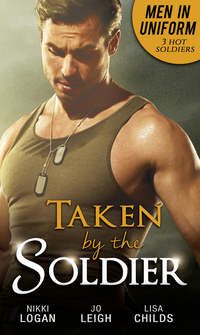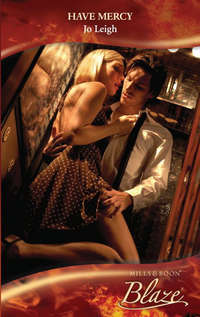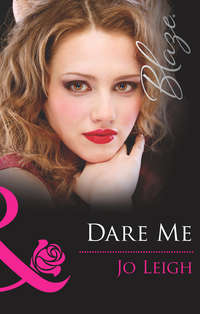
Полная версия
Confessions Bundle
She paused, hating to do this to him.
Blake’s whole body was rigid, his expression unyielding, as though he was braced to hear it all at once. For some people, that was easiest.
“Remember, this will be a new jury and any evidence that’s already been brought forth on the Eaton Estates deal or anything else pertinent to your father’s association with Eaton James will have to be reintroduced.”
“What kind of effect is James’s suicide going to have on the jury?”
She shrugged. “Depending on how it’s presented, it could work in your favor. The man’s future was looking brighter than it had in months. While he was going to have to face forgery charges, he was off the big hook. So—why now?”
“What do you think?”
“Perhaps there’s more to the story, and he realized, after taking the stand, that the things he revealed could lead to other things being discovered that would point to some guilt of his own. Another benefit as far as your trial is concerned, James’s former testimony would only be hearsay and as such inadmissible as evidence. In other words, it doesn’t exist.”
Juliet wrapped her arms around herself, her lightweight suit insufficient in the warmth department.
“On the other hand, he won’t be here for your attorney to question, either. Which will make it more of a challenge to find whatever James might have hidden in his telling of the facts.”
He nodded. Rocked slowly and then stopped. She had a pretty good idea what he was waiting for. She wished there was a way to minimize the truth.
“And if I’m found guilty?”
“Due to the amount of money in question, you could be facing up to fourteen years in prison, per count, which the judge could rule to be served concurrently or consecutively. However, a maximum sentence on a first offense isn’t likely. It’ll depend a lot on the intent and motivation the attorneys leave with the jury.”
His shoulders sagged. “I could spend the rest of my life in prison.”
Damn fine job she’d done of lightening that load.
“However, since this is a first offense,” she added without validating the correctness of his math, “it’s within the judge’s power to sentence you to probation. Depending again on the facts that come out during the trial, which will indicate your potential risk of a repeat offense and consequent harm to the community.”
“Repeat offense.” His voice overflowed with disbelief. She couldn’t tell whether that was because the idea of finding himself in this position was ludicrous, or because he was an innocent man in shock.
“I can’t believe that anyone, seeing what you’ve done with this company in the last five years, will believe there’s much risk of that.”
She was going to remain neutral. It was the only smart, logical, safe choice. He was not a father to Mary Jane. He was only the biological contributor. A sweet memory from her youth. Whether or not he was being falsely accused was not her concern.
And if she told herself that often enough, she might eventually get the message.
“Ironic, isn’t it?” He turned to glance down at her with a crooked, humorless smile. “Just weeks ago, you were joking about my ever finding myself in need of a good attorney.”
She remembered. And she’d said it, at least in part, because he was the last person she’d ever expected to need a defense attorney.
“I told you to call.”
“You were James’s attorney. Does that preclude me from hiring you?”
His gaze was focused on the sidewalk again.
So was hers.
“There’d be confidentiality issues, but assuming his wife signed a waiver, they wouldn’t prevent me from taking your case.”
Her heart was pounding. He was going to ask her to represent him, and she felt she had to help him. And that she could. She also knew she was asking the impossible. Of herself. Of fate. And of an eight-year-old girl who did not deserve to have her life any more chaotic than it already was.
Whether or not she’d done right by this man in keeping her secret nine years before, there was someone else, equally important, to consider here. Mary Jane McNeil. Juliet’s nine-year-old choice had shaped Mary Jane’s life—and she couldn’t arbitrarily disrupt that life because of latent guilt.
But, God, she wished she knew what she should do.
“Would you be willing to take this case?”
She leaned forward, following the trail of a girl walking four various size dogs, all with leashes heading off in separate directions, alternately pulling her and tripping her. Either she was brand new to the job, or needed to find herself another career.
“It depends.”
“On what?” He sounded more curious than concerned at that point. Juliet supposed his senses, his emotions, were on overload.
She turned to look at him. “Are you guilty?”
He stared right back with unblinking eyes. “Do you need to ask?”
“If I’m going to be your attorney, I do.”
“I’m not guilty.”
Blake offered to order them something to eat. Telling herself she wasn’t agreeing to anything but an informal lunch, Juliet accepted. And joined him on the couch when the chicken-salad-on-wheat sandwiches arrived. Whether she took his case or not, whether she could get the waiver or not, there were some things she could advise him about, just as a friend. Things he would need to know to protect himself, rights most people never had reason to learn about.
Like the fact that he had a right to have copies of all documents the prosecutor was going to use against him, including the statements of all witnesses who would be called to testify.
He listened. Nodded. Ate slowly. Asked a couple of intelligent questions. He didn’t take notes.
And as soon as there was a break in her explanation, he changed the subject.
“You said earlier that Schuster’s meeting with the grand jury this morning was only part of the reason for your overreaction about speaking on the telephone. What was the rest?”
Juliet set her paper-wrapped, half-eaten sandwich on the table in front of her. “Had enough trial talk for now, huh?” she asked. There was more she could tell him to arm him for the fight ahead.
“I need to take this one step at a time,” he told her, his gaze open, honest. “Let’s see what the grand jury decides. Until then, there’s no point in getting in any deeper.”
I can’t handle any more right now, she translated. And understood.
Wadding up his empty paper, he took a long swig from the cola can he’d produced—one for each of them—from the small refrigerator. His throat was long, slender, as he tilted back his head. Slender yet strong. The muscles in his throat moved with each swallow.
Never, ever had Juliet been so intrigued by a throat.
“I imagine that it’s not often the accomplished Ms. Juliet McNeil overreacts,” he said, his expression less pinched as he leaned into the corner of the couch, one arm resting along the back, and raised an ankle to his knee. “I’d like to know what caused it.”
It wasn’t something she talked about. Not even with Marcie. They had spoken of it, of course. In the beginning, right after it had happened. And then Juliet had gone to counseling separate from the grief counseling they’d both had, and they’d never spoken of it again.
“The news about Eaton James really threw me.”
Putting her cola on the table, Juliet turned to face him.
“You’ve spent a lot of time with James lately. I imagine you got to know him well.”
Not that well. “He was a client. Nothing more.” She’d had so many she didn’t even remember them all. Or at least, not the specifics of each case. Some of them she did, of course. But if she didn’t stay detached she’d never be able to do her job.
“I just can’t stop thinking about his wife. She’s left, not only with an uncertain and perhaps insecure future, but with a lifetime of what-ifs and if-onlys.”
And those could kill a person. If she let them.
Blake’s eyes narrowed again, but with compassion rather than suspicion. “It sounds as though you know what you’re talking about.”
A memory surfaced. Briefly. She and Marcie, standing at the grave outside Maple Grove.
And then, nothing.
“You were talking about it at dinner last month,” she reminded him with the surface confidence born of years of self-protection. Of the determination to survive. “Your ex-wife—and all the questions her passing raised.”
“The doubts, you mean?” His fingers lay against the back of the sofa. “I hadn’t seen in her in years. I know no logical reason to suspect that I’m partially to blame, that I might have done something differently, something that would have resulted in her making a different choice.”
“But you wonder, anyway, don’t you?”
He nodded. And he knew that she knew exactly what he was talking about. The look in his eyes told her he knew. And that he wasn’t going to push further if she wanted to let it go.
“My mother…” she began.
She wanted to let it go.
He continued to watch her, while she attempted to force long-buried memories back into the darkness from which they’d come.
“I have a twin sister. Did I ever tell you that?” She knew she hadn’t. Very few people in her San Diego life knew about Marcie. Or Maple Grove. And Blake had never been in her life. Even during that time on the beach, conceiving a child with her, he hadn’t been privy to her life. They’d talked about where they were going, not where they’d been.
His eyes widened. “A twin? There are two of you?”
Juliet chuckled. “I’m not sure if that tone in your voice means the idea of such a thing is good or bad.”
“Completely startling!” he said, smiling at her.
“We’re not identical,” she told him. “We’re the same size and pretty much the same shape, but she’s got the most beautiful natural blond hair and blue eyes.” California’s dream.
Blake chuckled. “I can just imagine what the two of you must have done to all those pubescent boys in high school. An intimidating redhead and an innocent blonde. Side by side.”
He thought her intimidating? He sure didn’t act like it. “How do you know she was the innocent one?”
Blake’s eyes took on a glint that dared her to lie. “Am I wrong?”
“No.” And then, when he said nothing more, “Why are you staring at me with that weird grin on your face?”
“It’s not weird. I’m just getting over the shock of you as a twin. I always pictured you so independent.”
Yeah, a lot of the world saw her that way. And that was her fault. “Nope, Marce and I are joined at the hip. Always have been.”
“Her name’s Marce?”
“Marcie.” She grimaced. “Marcella, actually. Our mother named us after her two favorite heroines.”
“Don’t tell me, you’re Juliet from Romeo and Juliet?”
Enjoying the laughter in his voice, Juliet turned a little more, lifted her arm to the back of the couch, her fingers within inches of his. “Don’t laugh, Ramsden.”
“So who’s Marcella?”
“She’s a magical little character who played with Raggedy Ann and Andy. It’s an old book published back in 1929, but Marcella was my mother’s favorite children’s book, full of magic and whimsy and love. From what I can tell, the story embodied everything my mother was before she met my father. Blinded by that whimsy and love and her belief in magic, she ended up pregnant with Marce and me, got married and pretty much ruined the rest of her life.”
Head tilted, he continued to study her in a way that left Juliet feeling strangely supported. “How so? She had two beautiful daughters.”
“She had a self-centered philanderer for a husband. He’d only married her to avoid the scandal of leaving a young girl pregnant and alone—and therefore getting cut off from his father’s fortune. Of course, he made her sign a prenup that denied her any rights to his wealth in the event of a divorce. Not that it mattered. After he squandered all the money, he ran off with a very wealthy older woman who supported him. As long as she was alive, he didn’t have to work. So, since he had no actual income, my mother couldn’t sue for child support.” She tried to tell it as though it didn’t matter because, if she tried hard enough, someday it wouldn’t. “My mother’s mother had been born and raised in Maple Grove, California, a little out-of-the-way migrant town. She’d gotten pregnant without being married, too, but hadn’t fared nearly so well. The migrant worker she’d fallen for had moved on and she never heard from him again. With no other way to support herself and her daughter, no way to get out of that town and get some education, she spent her life doing laundry, cleaning houses, mending, picking fruit, anything she could do to afford a little trailer on a lot outside town.”
Juliet stopped, her throat dry and choked as she heard what she was saying. Things she didn’t tell anyone. Things she tried never to think about. She had to leave now. Get back to her office. To real life.
Except Blake had taken hold of her fingers along the back of the couch. How could she not have known he was holding her hand?
“Go on.”
“When our grandmother died, at the ripe old age of forty, my sister and I were still babies. She left my mom that little trailer in Maple Grove. When we were thirteen, Mom suddenly found herself an ex-rich socialite—humiliated, friendless, with no training, other than in how to dress nicely, spend money and sit on charity boards. So she ran home to the only other life she knew.”
“And took you and Marcie with her.”
“Yeah.” To a town, a world, they’d never even heard of.
His fingers rubbed gently against the top of her hand. “That must’ve been rough.”
She tried to smile. “It wasn’t so bad for Marcie and me. We had each other.”
“And your mom?” With eyebrows slightly raised, his empathetic expression implied that he knew that part of the story wasn’t easy.
“She cleaned houses, worked in the school cafeteria, took in laundry. And during my last year of law school, she swallowed a bottle of sleeping pills, ran a bubble bath, went to sleep and drowned.”
Blake’s exclamation wasn’t anything she’d ever heard before. Or wanted to hear again. But she shared the sentiment. More than she wanted to.
“I’m over it now,” she quickly assured him, sliding her hand from beneath his to wrap her arms around her middle. “It took a while, but once you work through all the guilt and misplaced responsibility, you move on.”
“Do you?” The glance that had been so warm seconds before was piercing.
“Of course,” she told him, nodding for emphasis. “What other choice do you have?”
“I’m not sure it’s a matter of choice.” He sat forward, head bent, elbows resting on his knees. “Do we choose to forget and move on? Or do we just push things away and refuse to deal with them?”
He wasn’t just talking about her. She wished he had been. She’d have been able to defend herself against such an attack. But when she put herself in his shoes—wondering about his parents’ deaths, and his ex-wife’s—putting herself in Mrs. James’s shoes, feelings arose that she wasn’t prepared to face.
They’d been there, slowly attacking from the inside, since she’d first seen the news earlier that day, seen the press photo of Eaton James that had been shown on air during the trial, when there wasn’t any bigger scandal to talk about.
“Can we choose to forget?” “I think we can.” She was a walking testimony to it. “Really?” Turning his head, he glanced at her over his shoulder. “You’ve forgotten, then?”
Damn him.
“What do you suggest we do, Blake? Run around burdened down with all the problems and challenges life hands us—until they pile on so high they’re too heavy and we die? Sounds suspiciously like what my mother did. And maybe your Amunet. And Eaton, too. There’s got to be a better way.”
He nodded. “Or maybe it’s a question of the differences between people,” he said. “Maybe some of us have a built-in defense mechanism that kicks in and protects us when life feels overwhelming, some sort of self-preservation. And the rest of us have other great characteristics but lack that core of self-preservation that will sustain us.”
“Do you think so?”
He shook his head. “I honestly don’t have any idea. It’s just a theory I’ve come up with to try to understand.”
But if he was right, if those types of people didn’t have what it took to help themselves, wasn’t it up to those around them to provide that help?
“In the end, we’re each responsible for ourselves,” Blake said, as though reading her thoughts.
It was something he’d done more than once on their long-ago night together.
What was it about this man that made him somehow…different?
They sat silently for several minutes, thoughts wandering. She had to go, Juliet knew that. She just wasn’t ready to leave the peculiar sense of peace that had settled around her.
Thinking about trying to explain the moment to Marcie, she couldn’t find a way. Blake’s life was in complete turmoil. Hers wasn’t much better. And still, in this room together, for these few minutes out of time, they’d created a moment of calm.
It was a precious commodity.
“So how soon should I expect them?”
He hadn’t moved, other than to turn his head on the couch. Hadn’t said who he was expecting, either, but she knew. Them. The Law.
“Could be late this afternoon. Or tomorrow.”
Licking his lips with the tip of his tongue, Blake said nothing.
“It’s always possible the grand jury will find that Schuster doesn’t have enough evidence.” Possible, but not likely. She just couldn’t leave him sitting there without hope.
“Schuster’s as seasoned as they come,” Blake said, his voice a monotone. “How often do you think he goes to the grand jury without sufficient evidence?”
“Never.”
“That’s what I thought.”
“You’ll call me?”
His gaze locked with hers. “You’ll take the case?”
“If I can,” she told him, wondering how the hell she was going to get him off when the evidence so clearly pointed to his guilt. And how she was going to survive however many weeks it took to do the job, becoming intimately acquainted with the father of her child, torn to the roots of her soul about one solitary choice that had seemed so right at the time and now just seemed too huge to handle.
She couldn’t tell Blake about Mary Jane now. That much was clear. The timing was all wrong. For everyone.
She could only hope that, by some miracle, she’d be able to hold things together for all three of them.
CHAPTER TEN
THERE WERE MANY REASONS Blake didn’t sleep that night. Walking around the home he’d built upon his return to the States, he felt haunted.
By Amunet and the things he should have seen but didn’t. The things he still didn’t see. By Juliet and a night that had taken on surreal qualities in its perfection and therefore stood before him as a measure by which to judge every relationship he’d ever have—a measure by which every relationship could only fail. A measure that was pure fantasy.
Haunted. And hunted, too. By a judicial system he’d always taken for granted would offer him security and protection. Would they come with the light of dawn? To his home? His office? Would he soon no longer be free to wander his house in the dark? To hear the ocean as it crashed against the shore?
Was this all he’d ever be, what he was in this moment? Was there to be no chance for a family? A chance to have loved ones in his life again? People he could call his own?
And God in heaven—he knelt down at the window of his living room, fists and hands resting against the glass as he faced the ocean—he knew what they did to guys in prison.
When he couldn’t stand the pain of viewing the magnificent, moonlit ocean before him, he squeezed his eyes shut. And let the tears escape.
How the hell was he going to survive?
THEY CAME TO HIS HOME. Before Pru arrived for work Tuesday morning. Up and dressed in a blue suit, white pressed shirt and red tie, Blake was glad they’d spared him the discomfort of having his staff gathering around him. This particular moment he wanted to face alone.
“Mr. Blake Ramsden?” the uniformed man at the door asked.
“Yes.”
The fifty-something peace officer held out his badge. “I’m Deputy Thomas from the sheriff’s department, sir.”
Blake read the badge because it seemed to be expected of him. He didn’t doubt the credentials of his messenger.
“I need to give you this.” The man held out a folded piece of paper, innocuous-looking for all the consequences implicit in its contents. “You’ve been charged with a crime, sir, and are required to appear at 8:30 a.m. Friday morning….” He named the branch of California Superior Court not far from Blake’s office. “If you fail to appear there will be a warrant issued for your arrest.”
Blake had a breakfast meeting with the mayor Friday morning. Not that he considered mentioning it. Guaranteed, neither Schuster nor the Superior Court of California gave a damn about Blake’s breakfast. No matter whom it might be with.
Already his freedom was being curtailed. Whatever happened to innocent until proven guilty?
Blake took the document. Signed where he was told to sign. Thanked the man. And closed the door.
“I THANKED HIM!” were the first words out of his mouth ten minutes later when Juliet McNeil answered her phone.
“Thanked who?”
Somewhere in the back of his mind was the realization that she didn’t ask who he was.
“It’s only seven-thirty in the morning,” was his reply. “I expected to get an answering machine. And you answered yesterday, too. I wouldn’t have thought you’d spend much time in your office, answering phones. You hard up for cases, Counselor?”
Forearm leaning against the wall, Blake ran his other hand down his face. “I’m sorry, I don’t even know what I’m saying,” he continued. He held the hand clutching the folded paper above him.
“It’s okay.” Juliet’s tone was soft, almost a whisper. “The number on my card is my cell phone. It takes messages just as effectively as an answering service would and cuts out the middleman.”
Blake heard about half of what she said. He had her cell number. That was good.
“So you answer it at home?”
“Not usually,” she said. “I saw your number come up on the screen.”
He’d given it to her the previous day, just before she’d left his office. He hadn’t expected her to memorize it.
“Who did you thank, Blake?”
“The deputy who served me.”
He was standing in the kitchen, his back to the windows, avoiding the ocean. Today it didn’t say anything to him but words he didn’t want to hear.
“What’s the charge?” Juliet asked.
“I don’t know. I didn’t read the document.”
“Did you look at it?”
“No.” He glanced up at the offending piece of paper. “It’s still folded.” Not that he held out any hope that not looking would change the result.
Right now, he needed more than hope. He needed strength, whatever he could muster. He needed this woman to represent him in court.
“You want to meet me at my office in an hour and we’ll look at it together?”
“Sure, but don’t you need to get that waiver?”
“It’s done.”
The muscles in Blake’s stomach relaxed. She was reliable and quick and committed. She’d be able to take his case. He had the best on his side.
And he was going to be spending some of the darkest days he’d known with the best memory of his life.
“WAS THAT AUNT MARCIE? Why didn’t she call our number?” Mary Jane asked as Juliet came into the kitchen Tuesday morning.
Mary Jane’s skinny long longs swung back and forth beneath the table. In jeans, her white frilly blouse tucked in, the little girl was just finishing up the cereal Juliet had poured for her earlier.
“It wasn’t Aunt Marcie.”
“Who else calls us this early?”
Juliet checked the lunch she’d already packed for Mary Jane. Chips were there, on top, where they wouldn’t be crushed. Juice box in the bottom. “It was work.”









